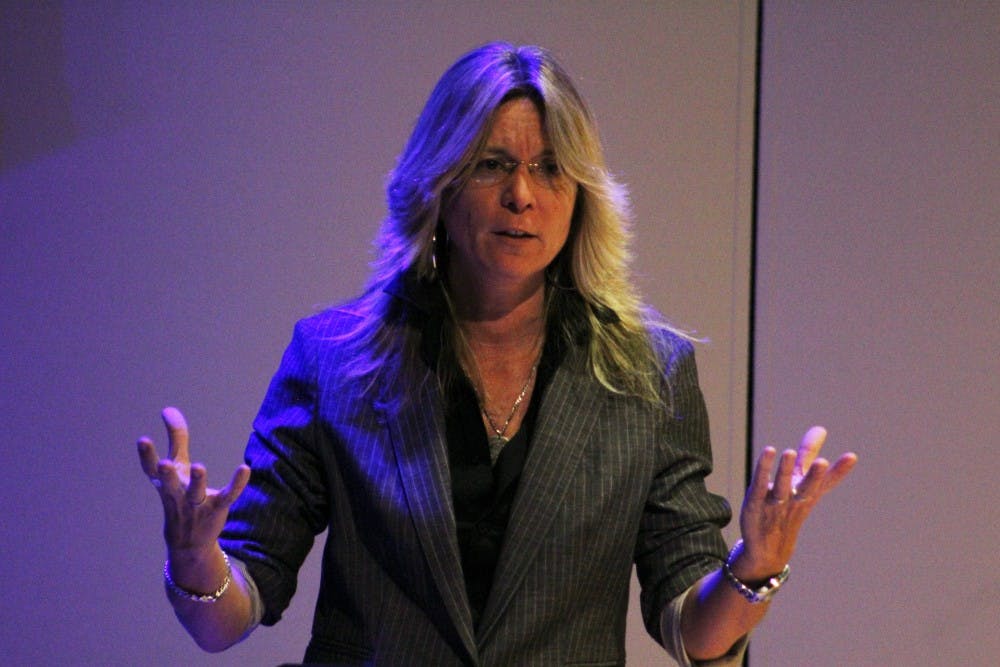When Muriel Vernon, assistant professor of anthropology at Elon University, conducted an observational study on transgender women in 2010, one subject's wife said the following in a structured interview: “Just how do I explain to someone that my wife is also the father of my children?”
Using this question as a foundation, Vernon delved into this topic Tuesday during her lecture, “Enculturating Transgender Medicine and Deconstructing the Down Low,” in Yeager Recital Hall. She said transgender individuals’ heightened sense of inward optimism immediately after surgery is often demolished by the social stigma which follows.
Vernon related the process to any typical medical problem, claiming those involved would be healed to a certain extent but must endure a grueling process in order to sustain their well-being.
“If you break your arm, you have to wear a cast and it restores you to a sense of health,” Vernon said. “In this case, the medical treatment can fix your personal problem, but it won’t restore you to as a social being that can go on with your daily life. It changes you profoundly and you have to live with it.”
In 2010, Vernon temporarily relocated to Trinidad, Colorado, which is known as the sex-change capital of the United States for its abundance of Gender Reassessment Surgeries (GRS). Working with a sample size of 50 transgender women from around the globe, Vernon organized structured interviews with patients before their surgery and lived with them in the recovery house afterwards.
Vernon said her unlimited access to the local hospital aided her experiment greatly. Many subjects desired the surgery to live in the gender-specific body they wished they were born in. But most of Vernon’s studies displayed negative results. Many subjects said they were unable to successfully assimilate into the culture because of their prior relationships.
“I’m going to have to recover from the symptoms of 55 years of having fulfilled the role of having been a man," said one participant in the study.
Vernon said the main reason people struggled with their new life was because of their past. She argued many of the participants were unable to explain to their transformation to their friends and family. She added that the relationships people create is what makes them who they are. According to Vernon, those who underwent surgery had desperately craved to alter themselves but received tension within themselves and within their social networks.
“You can change your body to be physically and sexually different, but you can’t turn a father into a mother,” she said. “It's unrelatable and hard to put into words.”
Vernon said she first sparked interest in this field of study after watching a documentary on Robert Eads, a transgender man who died from ovarian cancer. Eads was not treated until the cancer was terminal because doctors were hesitant to offend people. When Eads died, his partner, Lola Cola said, “What a curious thing to be so uptight about. Nature delights in diversity. Why don’t human beings?”
Vernon urged those in attendance to be as accepting as possible to transgender individuals. She said that Elon is the perfect model for how to treat the LGBT community.
“I think it is good to give LGBT-themed topics more exposure in the university,” she said. "The big mission Elon is trying to accomplish is diversity and I hope this feeds into that. “


